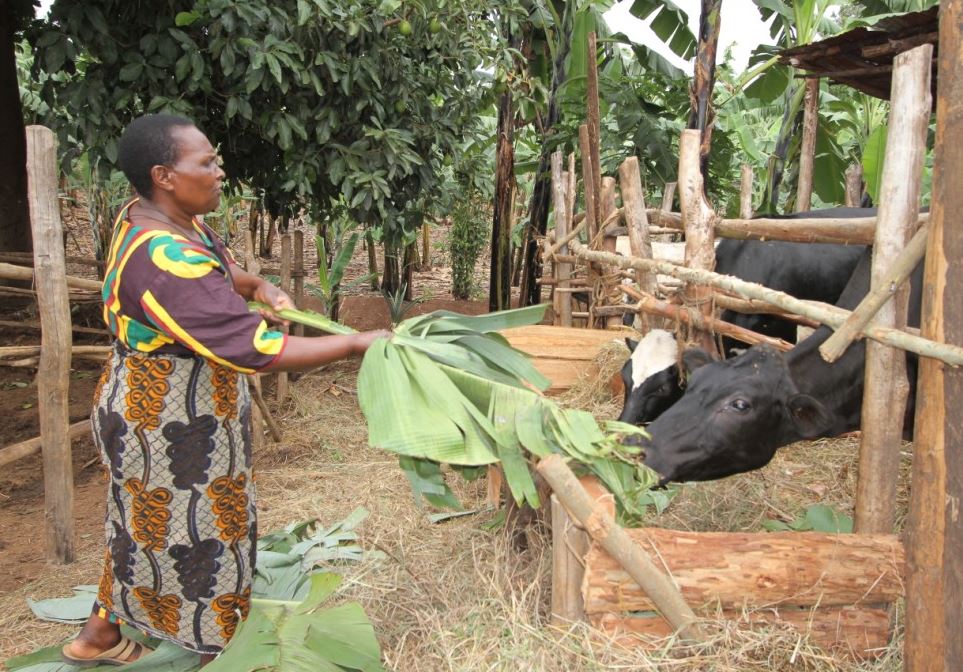Tanzanian farmer to Congress: We don’t want food aid. We want reform.
“We can help children survive in other regions of Tanzania and other countries.”
“The great problem is that we have no sure markets where we can buy and sell,” Emiliana Aligaesha explained exasperatedly.
“This makes the young people discouraged to deal with farming because they see their parents and neighbors do it. They see them die poor, so they are not interested.”

Emiliana Aligaesha’s visit to DC last week corresponded with the Senate and House’s decisions to increase local and regional procurement by just $20 million. Much more work remains to be done to achieve the kind of real reform the Administration has asked for and that Oxfam supports. (Listen to this Humanosphere podcast on the politics of aid reform with Oxfam’s Eric Muňoz and Jon Scanlon, who both accompanied Aligaesha last week.)
Oxfam invited her as a farmer in the developing world who would stand to benefit from food aid reform. Emiliana Aligaesha formed a successful farmer’s cooperative, Kaderes Peasant Development Ltd. (KPD), with her fellow community members in the Karagwe District of northwest Tanzania in 2007. After getting support from USAID, they gained a small contract for beans with the World Food Programme (WFP). (Read more here.)
Below are Emiliana Aligaesha’s words, pieced together from various events, but exactly as she said them to stakeholders this week. (You can watch a livestream recording here of an event at which Aligaesha appeared, Enough Food For Everyone If: The G8’s Role in the Fight Against Global Hunger.)
As we bemoan the vested, status quo interests that prevented reforms proposal from gaining much ground, hardworking and innovative farmers like Aligaesha will carry on.
Her words speak for themselves.
***
“I believe in farming because many people at our area cannot get employment. So farming is another way to create jobs to the people. So many of the people are farmers. These small farmers feed their families, feed all the urban people, and nearby countries.
“Most of them are women, working hard, feeding their families, providing all their needs, fetching water, paying school fees. At the end of the day, they are the poorest in the area because they use much energy and profit almost nothing.

“The problem here is that whatever we produce, we sell under the [production] costs. This breaks the heart of farmers. At harvest, we don’t know who is going to buy our products. You have no opportunity to bargain with these middlemen during harvest. They can simply go away to another farmer. Within the same day, prices can change, because if they see five people come with beans. Some of us have very small houses for family use, but we have nowhere to keep these products [after harvest]. So we need to sell quickly, another way to benefit middlemen. When people run out of their own food, they will have to go to these middlemen who will sell food back to them at two or three times the price.
“KPD competes with the middlemen, but it is not enough. If we can increase the WFP contract [currently only 5-10% of the beans harvested] to buy more and get more contracts, this will help make the price stable. We don’t have malnutrition issues in our area to the same extent because we produce different kinds of food. The soil is fertile. Take beans from our own home country because it supports these farmers, these women, and can help people in war or people in difficulties.
“I sometimes sit with women and do research. I ask, ‘If you want to get 20 kilos of beans, how many days can you work there? How much seedlings are you going to put? How many days have you gone there and each day? How much are you to be paid?’ When we look at production costs [and profit], it is empowering.
“If we get means of transport, we can help children survive in other regions of Tanzania and other countries. What is needed here is… Farming with hand hoes, up to now farming with hand hoes – it makes you tired. You have to bend your back. If we get improved farming tools, this could help us much, and irrigation methods. We have rivers, Lake Victoria, but just need some systems to use the water.
“I met different women’s groups in Texas and New York. I visited official offices in Fort Worth and New York and Washington, DC [Kay Granger, R-TX Nita Lowey, D-NY, Lois Frankel (D-FL)]. All American people are all smiling to me. I feel at home.

“I am also happy that the environment here is almost the same at home. Everywhere is green. The difference is those very, very high buildings. Whenever I meet people, they are all busy, thinking to promote their lives.
“I believe in farming because it has supported my children’s education. I have six cows. I have built a water tank for my farming [to collect rainwater], rehabilitated half of my house. I suggest that farming is good because I always have something to eat. Whenever any visitor knocks on my door, I know what to do. I am almost 70 but I never grow old because I have food.”